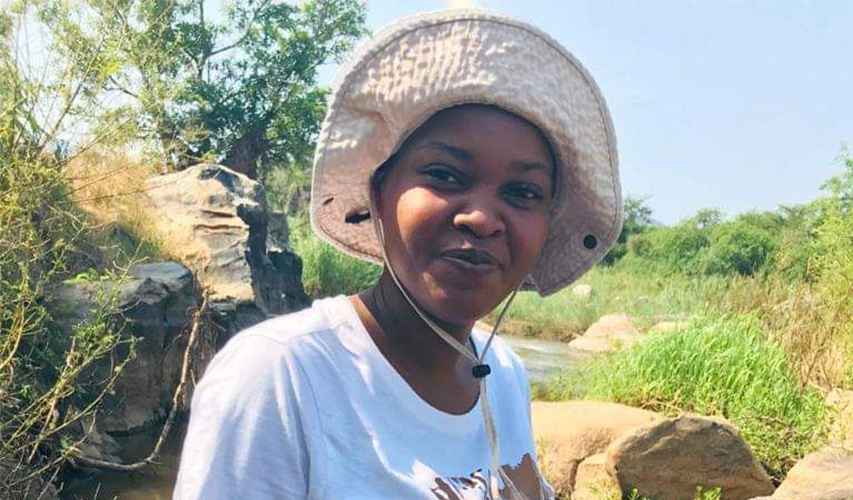Themba, a postgraduate Nature Conservation student, attended the National Research Fund’s South African Institute for Aquatic Biodiversity (NRF-SAIAB) summer school, which is hosted annually to introduce students to fieldwork in estuarine and marine environments, acoustic telemetry and baited remote underwater stereo-BRUV systems, as well as data analysis associated with both methods.
From a marine perspective, South Africa forms the southern apex of a major continental mass, flanked by very different marine ecosystems on the east and west coasts, and projecting towards the cold Southern Ocean large marine ecosystem. SAIAB’s scientific leadership and expertise in freshwater aquatic biodiversity is vital to the national interest when dealing with issues arising from exponentially increasing pressures of human population growth and development.
An internationally recognised centre for the study of aquatic biodiversity, SAIAB is a National Facility of the National Research Foundation and serves as a major scientific resource for knowledge and understanding the biodiversity and functioning of globally significant aquatic ecosystems. With both marine and freshwater biogeographical boundaries, southern Africa is ideally placed to monitor and document climate change.
"Some of the learnings at the summer school included tagging, conservation, and management of fish. We also did research on the movement of fish from estuarine into the marine environment (estuary marine connectivity)."
She further explains that the SAIAB summer school provides a platform for students to be exposed to different career paths in the aquatic environment. They are also looking for students to join their team and they work with some institutions of higher learning.
 Themba has intentions to teach her community about nature conversation.
Themba has intentions to teach her community about nature conversation.
"We learnt about ways of collecting population data and observation data of fish and other macro- organisms/animals that are found only on the sea floor. It records what happens in the water column. It can be used in different marine and estuarine habitats.
“Within SAIAB there is a coelacanth ecosystem programme, which is a large programme within the NFR that provides access to funding to do research in the marine environments. A lot of it is orientated around addressing critical questions surrounding marine sustainability and adaptation."
The 24-year-old says she chose a nature conservation qualification because of her interest in natural resources (both terrestrial and aquatic) and because she wants to educate others about environmental issues.
“I grew up in a rural environment where most people rely on natural resources to make a living and are unaware of the dangers and importance of sustainable natural resource management. I was also fascinated by the concept of climate change. I realised the natural resources are depleting faster than we (human beings) are able to replace them."
Themba concludes that she believes through education, she can be able to come up with mitigating measures and new strategies that will assist with addressing climate change challenges.
@ Story by Lisa Thabethe. Pictures Supplied.